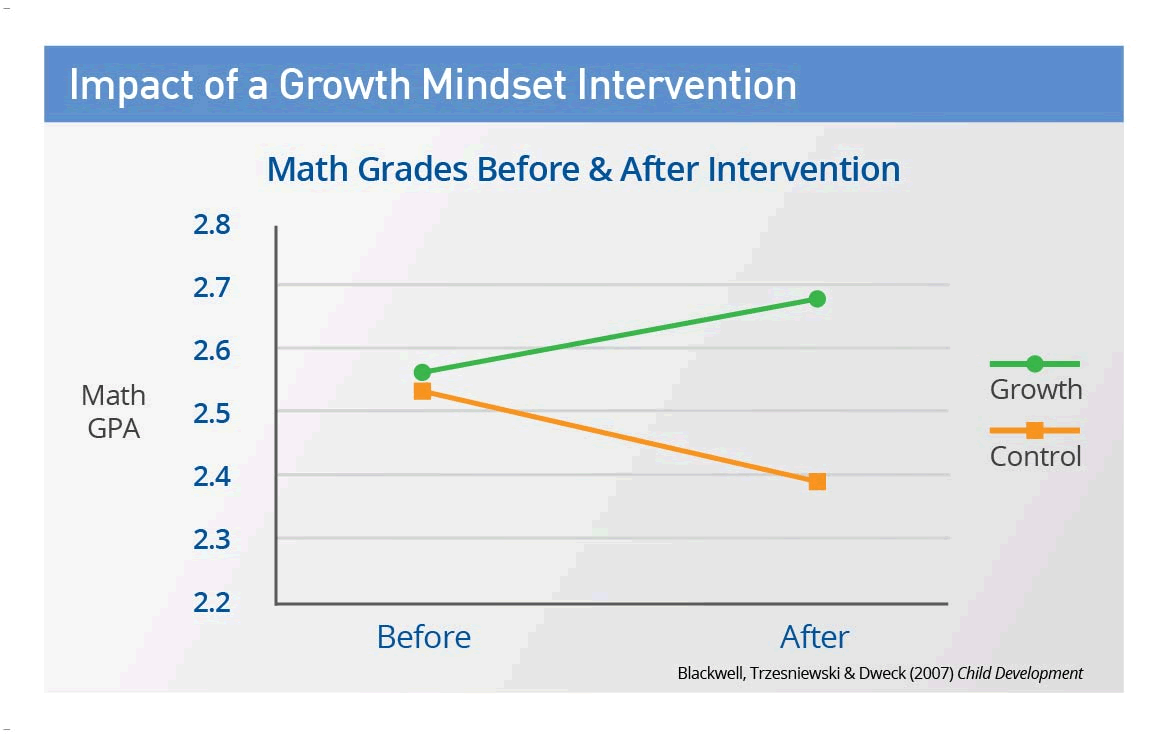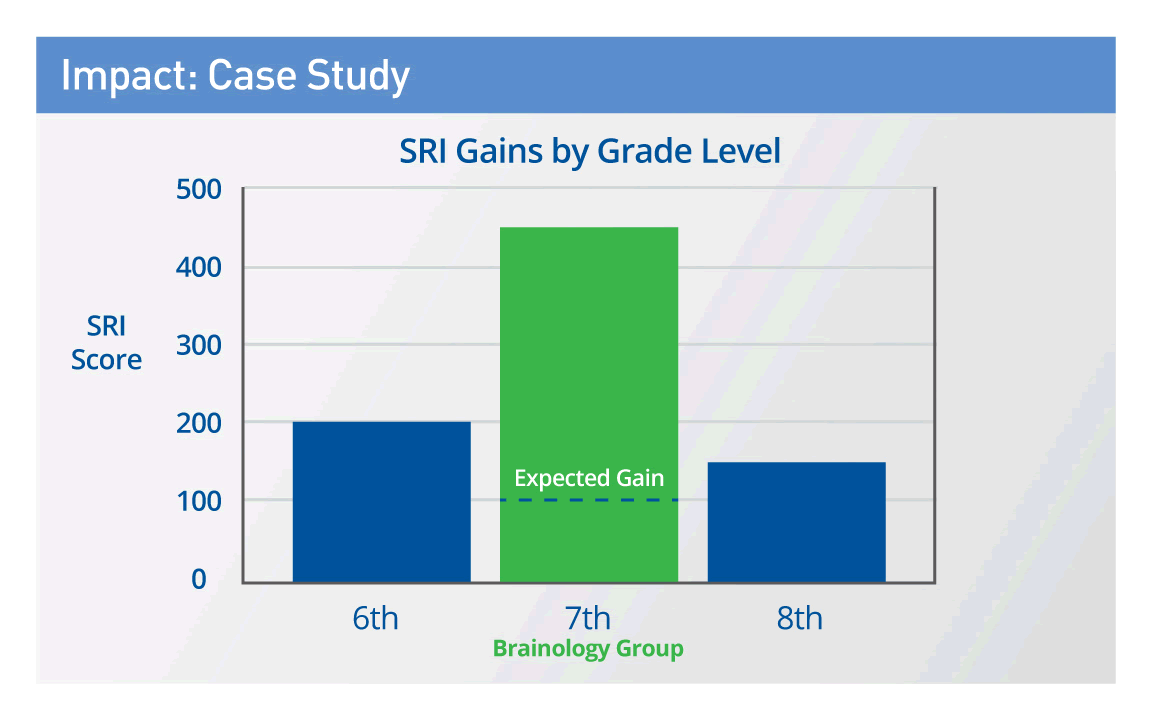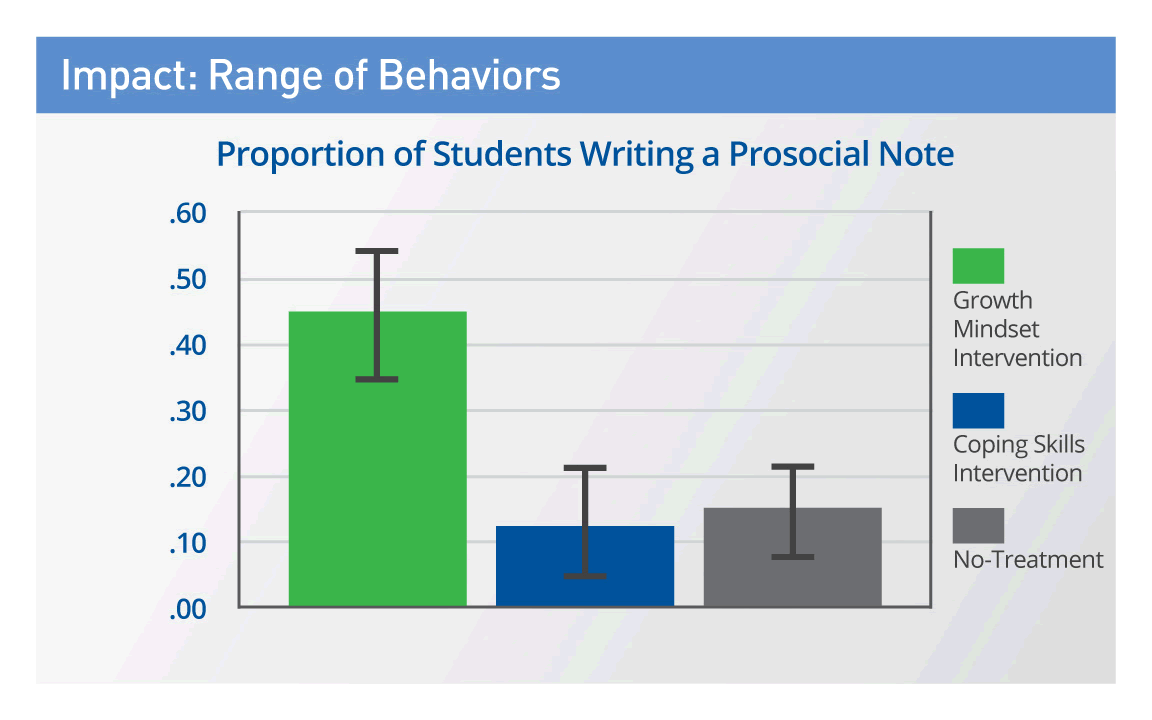
In a study with 7th graders at an inner-city NYC school, Blackwell and her colleagues divided students into two groups for a workshop on the brain and study skills. Half of them, the control group, were taught about the stages of memory; the other half received training in the growth mindset (how the brain grows with learning to make you smarter) and how to apply this idea to their schoolwork.
Three times as many students in the growth mindset group showed an increase in effort and motivation compared with the control group. After the training, the control group continued to show declining grades, but the growth-mindset group showed a clear rebound in their grades. Our Brainology® program is based on this malleable intelligence intervention, and the research consistently demonstrates that the Brainology program changes mindsets and increases achievement. Read the full study here.
How does Brainology change mindsets and impact achievement?

In a large urban school district, the SchoolKit was implemented in a quasi-experimental study. From the 2012-2013 school year to the 2013-2014 school year, the district saw the following results:
- 67% of students who were initially fixed mindset oriented became more growth oriented
- 59% of initially low-achieving students improved their GPAs
- 70% of students improved their SRI scores
In one school, in which Brainology was implemented as a full time 9-week course for all 7th graders, the Scholastic Reading Inventory gain was 437 points, as compared to the expected 100 point gain. In addition, the average student at this particular school, achieved over 2 years growth in mathematics, making them the best performing middle school in the city. Read the article here.
Can teaching a growth mindset close the achievement gap?
Research supports a link between mindsets and stereotype threat. Stereotype threat is a situation in which people are at risk of confirming a negative stereotype about themselves. For example, females, who are stereotyped as having less aptitude in math, when taking a test that measures “math ability,” may worry that a poor performance will validate this stereotype in the eyes of others. Since awareness of stereotypes can contribute to students’ underperformance in certain areas, researchers investigated whether mindset interventions could help alleviate the psychological threat of group stereotypes on performance. In a 2002 study, a group of African-American college students was encouraged to adopt a growth mindset and perceive intelligence as a malleable quality. The group receiving this intervention reported higher enjoyment of academic subjects, received higher grades, and engaged more with academic material than those in comparison groups. Read the full study here.
Additional research on stereotype threat predicted that teaching students to attribute their academic difficulties to transient situations would lead to higher test scores and better overall performance. Since many students draw from stereotypes to build theories about themselves, they learn to attribute their performance to perceived, fixed inadequacies. In a 2003 study with a largely low-income and predominantly minority sample, a subset of students received growth mindset messages from mentors. These students, after working with a mentor who assured them of the malleability of their intelligence, earned significantly higher state test scores than students who did not receive the same kind of growth mindset messaging. Read the full study here.
For more on reducing stereotype threat through mindset interventions, see Reducing Stereotype Threat in Classrooms published by the Institute of Education Sciences.
Does teaching a growth mindset reduce aggression and bullying?

In addition to their academic ability, students may develop a fixed mindset about their personal characteristics. Yeager and colleagues found that students who participated in a 6-session intervention about the malleability of their personality traits behaved less aggressively and more prosocially. This research demonstrates that we can change student mindsets in non-academic areas and make an impact on a range of behaviors. Read the full study here.